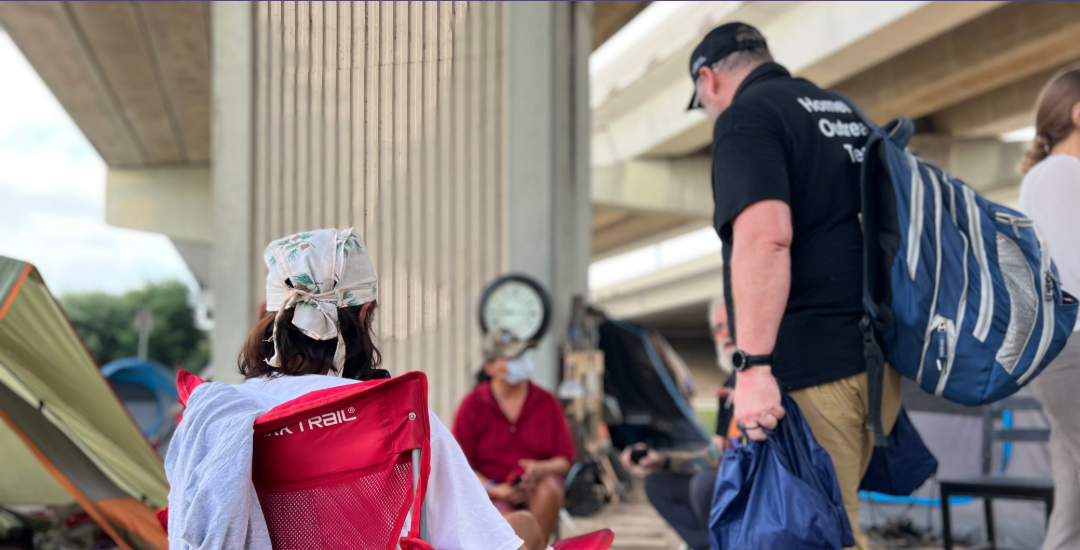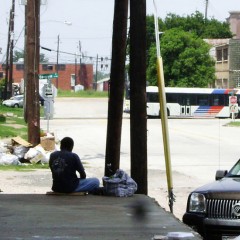Young recently began her role as CEO and president of the Coalition for the Homeless in Houston and Harris County (CFTH), succeeding the recently retired Mike Nichols. Young previously worked in executive leadership positions at Career and Recovery Resources Inc., Allies in Hope, The Women’s Fund and the Houston Area Women’s Center.
“I’ve worked with families, domestic and sexual assault survivors, and people with HIV and AIDS,” Young said. “Common to all those themes and issues that people have is that if you don’t have a place to live, you really can’t move yourself forward. Being able to be a part of the solution to a systems approach to handling homelessness is an interesting, complex job, and a very fulfilling job.
“CFTH and its partners have built out an amazing system for the county, the city, funders and providers all to work together. Which, in my mind, with all the work I’ve done around social services, is about the only way to get anything done.”
The 2023 edition of the annual Point-in-Time Homeless Count and Survey indicated that at any given time there were about 3,270 homeless people in the Houston region. According to CFTH, “Fifty percent of homelessness is caused by an economic crisis (job loss, bills become higher than earnings), debunking common stereotypes that homelessness is overwhelmingly caused by substance use – which actually accounts for less than 10% of homelessness locally.”
In Kinder Institute research published in September, 85% of Houston residents surveyed said that homelessness made them “concerned” or “very concerned.” Young said some ongoing challenges to addressing the issue include stabilizing and ensuring enough funding to provide housing and wraparound services for people to maintain their housing.
“People have their own belief systems and experiences, and that’s usually what leads them to the conclusions that this is a major concern,” Young said. “It will be helpful for us to spend more time educating about how people ebb and flow through the system, and why you see what you see and what can you advocate for in your own community to ensure that it’s less of an issue.”
Young said it is important to strike a balance between the language of crisis and the language of hope when trying to keep homelessness at the forefront of public conversation.
“It’s hard for people to see what CFTH and its partners have done in terms of removing encampments and large groups of people, because they still see homeless people on the street,” she said. “Some of our biggest challenges are being able to explain what we’re doing, how we’re doing it and what it takes to do it. We want to keep working on demystifying the idea of homelessness and who is homeless and why they are homeless.”
Photo courtesy the Coalition for the Homeless of Houston/Harris County
One of Young’s priorities for CFTH and its partners is to work toward lessening the impact of homelessness on an individual and moving them out of homelessness in a timely manner, and determining the appropriate intervention for each individual.
“It’s really about getting the understanding that prevention and diversion are ways that we can address homelessness in a long-term manner,” Young said. “Second is that we stop underfunding the need for housing for people who have disabilities and the elderly, because those are communities in need of supporting. Some of that is really looking at the systems that feed our communities in ways that are not prepared to handle individuals coming out of hospitals, individuals who have chronic illnesses, and having a place for them to live and not only thrive but stabilize for long periods of time.”
Among Young’s first duties as CEO will be overseeing the 2024 Homeless Count and Survey from Jan. 22-25. She does not expect to make any changes to how the survey is conducted this year.
“I know people would like to see improvements, and not everybody agrees that it’s the most complete way to do it,” Young said. “But you have to be cautious about when you change methodology, because then you’re changing baseline. You’re changing the actual thing that you’re measuring. The current method gives us the best ability to identify trends and long-term baselines that can be utilized to validate the information.”
CFTH, which was founded in 1982 and helps coordinate efforts in Fort Bend and Montgomery counties as well as Harris, has been lauded for its cooperative approach to homelessness that unites businesses, government agencies and social services providers under the umbrella of “The Way Home.” After previously working as a service provider, Young hopes to fortify this web of partnerships as CFTH’s leader.
“One of the most amazing things is the collaborative nature of the work that we do, and recognizing that every single one of these collaborative partners has their own agenda,” Young said. “How do we create win-win situations for everyone? We need to consistently tell the story of all the people who have to be involved to make this work.
“Although it may feel very overwhelming when you’re trying to tell the story, it is actually the core of the story. It is that all these agencies and businesses got together. I hope part of what we do in the next few years is highlighting that and really clarifying the tools and the ways that we are able to create such strong partnerships.




